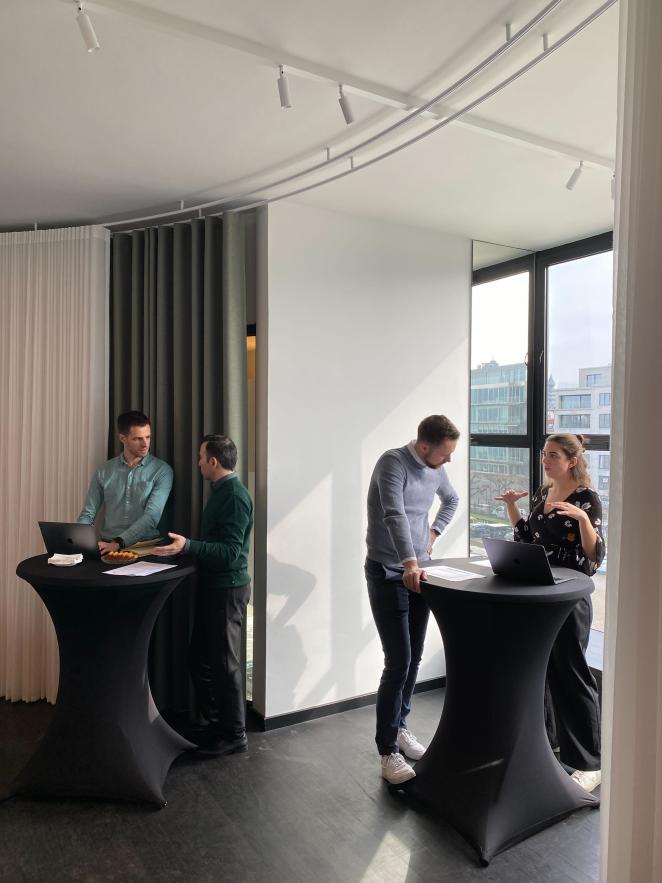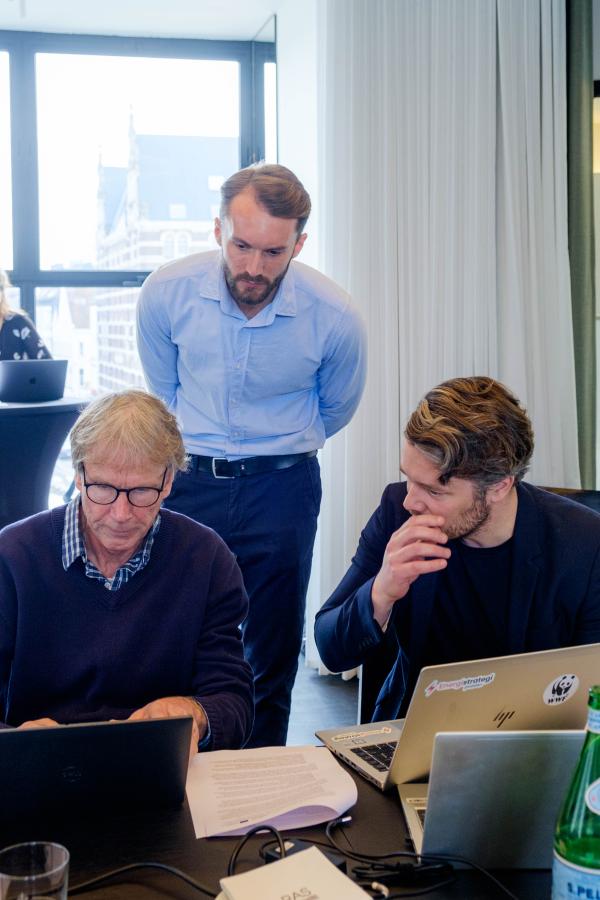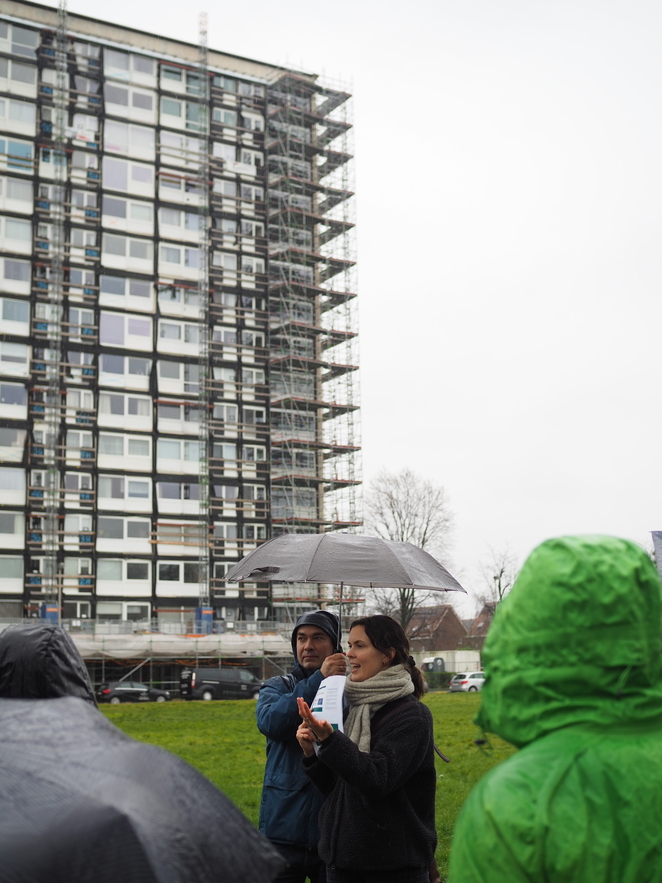Over a 2-day conference, five cities and representatives from frontrunner DSOs, research institutes, associations and companies met to set out plans for Europe’s first wave of local energy action plans (LEAPs). Discussions highlighted the importance of new DSO-city relationships, the new capacities local authorities need to develop to be local energy coordinators, and the step-change energy planning challenge facing municipalities across Europe.

All across Europe, huge challenges loom over local energy systems.
Nearly-full grids, waiting lists to connect new critical infrastructure to the grid, and capacity bottlenecks that threaten key carbon emissions targets. All of these concerns and more were raised during the second conference of the EU-backed COPPER consortium, held over two rainy days in Antwerp.
Across workshops, discussions and debates, the question that dominated discussion was: how can municipalities and DSOs work together to plan for the step-up in energy coordination this new reality demands?
One answer is the Local Energy Action Planning or LEAP. A LEAP is an action planning agenda developed by a local authority in partnership with their DSO, which aims to coordinate the local energy system to support a city’s development plans with reliable, green, local energy.
Frontrunner cities share plans for taking on the local energy transition

Across the two days, city partners shared the scale of the challenge facing their local energy systems. Between nearly-full local grids and increasingly ambitious electrification programmes, managing energy will become an urgent priority for European towns and cities in the next five years.
As part of COPPER, six pilot sites are testing new solutions to help their cities take on the challenge. From a city-wide virtual power plant in Varberg to a climate-neutral heating pilot in Antwerp, pilot leaders shared their ambitions for testing the path to LEAPs in pilot showcases:
- Varberg showed their progress with Nätflex, a planned 85MW virtual power plant linking private consumer solar panels and car chargers as well as large-scale assets like wind turbines into a single system.
- Ghent and the University of Ghent detailed their plans to monitor data and explore the possibility for a virtual power plant in the upcoming all-electric neighbourhood of Mariakerke.
- Antwerp showcased progress in their renovation, district heating and electric heating in Linkeroever (the Left Bank) as part of their Strategic Energy Vision.
- Bremen detailed how Ministries for Mobility and Environment are working together with the DSO to prepare for electrified shared mobility city-wide.
- Dordrecht showcased the way data is being used at the climate-neutral business park DistriPark to incorporate grid congestion patterns into local decision-making.
- On behalf of Frederica, Center Denmark and the University of Aalborg demonstrated data-based tools and mapping to understand energy flows for decision-making.
Pilot presentations were complemented with keynote talks from E.DSO stressing the importance of collaboration between municipalities and their local DSO, and from Climate Alliance on the potential for broader promotion of COPPER results across cities and organisations.
Identifying the six components of local energy action planning

LEAPs are a significant undertaking for local authorities, involving the coordination of existing policies, budgets, skills and data. To create a common framework for cities to assess their readiness for LEAPs, the COPPER consortium ran a workshop on Day 1 to determine the readiness of COPPER pilot partners.
The session covered six factors of readiness common to any LEAPs development process. The factors outlined included:
- Political and organisational buy-in - The level of support within an organisation to undertake local energy action planning, including the awareness of the challenge and solutions, internal leadership on the topic, and support to allocate resources and invest time in this work.
- Multi-level policy alignment - The extent to which existing or proposed policies and strategies are in alignment with LEAP actions, including horizontal alignment across departments (e.g. energy, economics, mobility, urban planning) and vertical alignment with other levels of government (e.g. regional, national, EU).
- Budgeting and financing of actions - The extent to which the delivery of LEAP actions is supported through financing mechanisms such as the allocation of budget and personnel resources and the maturity of financing arrangements/contracts.
- Tools and Planning scenarios - The level of access to innovative digital solutions that assist in exploring new ways of thinking and exploring the challenge and solutions, including the gathering of energy and planning data and the development of data-driven tools.
- People, capacities and skills - The extent to which new skills and capacities are available within city departments.
- Collaboration with DSOs - The extent of collaboration between DSOs and city departments, from initial stakeholder meetings to formal collaboration agreements and frameworks.
Through the workshop, partners identified where each city stood in terms of readiness for LEAPs. It was identified that most cities are at an early stage of readiness across factors, with a proof of concept to be rolled out during the project to advance several of the components listed above.
The concept of LEAP readiness will be further developed in the coming months so that cities beyond COPPER can use the framework to self-assess their preparedness for local energy action.
Visiting the Left Bank

As part of the conference, COPPER partners took a field trip to Antwerp’s Left Bank to see how Antwerp is supporting renovation, district heating, electrified heating and other carbon-neutral innovations in the residential district.
The Left Bank is also a site one of the COPPER pilots, where Antwerp is monitoring the impacts of district and electrified heating on the local grid to update its Strategic Energy Vision and produce its own LEAP.
Meeting with city and urban planning representatives under the pouring rain, Antwerp showcased their work supporting energy renovations and their plans to work with DSO Fluvius to turn the Left Bank climate-neutral by 2030.
Next steps for the COPPER alliance
Having determined their level of readiness to develop LEAPs, the COPPER consortium will spend the next six months taking their first steps to improving this readiness.
For pilot leaders, this means rolling out the first energy innovations to be included within their LEAPs. Knowledge partners will support pilot activities while developing the LEAP concept into a replicable tool for cities across Europe.
Following six months of action to advance readiness, the consortium will meet again in Varberg in September to define a LEAP concept that can be replicated and applied all over Europe.